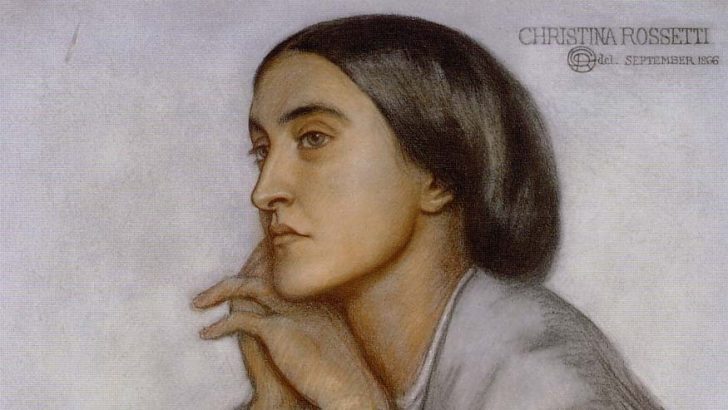Christina Rossetti: Poetry, Ecology, Faith
by Emma Mason (Oxford University Press, €30.00; available also as an ebook)
John F. Deane
The ever popular Christmas carol In the Bleak Mid-Winter was written by Christina Rossetti but holds its fame more from the musical setting by Gustav Holst than by the strength of the poem.
Rossetti wrote a great deal, in prose and poetry, but too much of it is riddled with easy sentiment and remains difficult for the modern reader to appreciate. For her there was simply no question to answer: God is, Faith is certain, and the New Testament holds all that we need to know.
She was writing thus, and gained great popularity, at a time when a poet like Gerard Manley Hopkins, suffering exile in Dublin, was “wrestling with (my God!) my God”, suffering doubts, illnesses and doing his duty as a Jesuit. Hopkins was way ahead of his time with the power and range of his verse-forms and his language, too much for the age in which he lived. Rossetti, and the Pre-Raphaelite Brotherhood, captured the mood of a weakling age and are now viewed with some suspicion.
Convincing work
Which leads me to honour the work of Emma Mason in this book, a reasoned, convinced and convincing work, that shows Christina Rossetti to be far more than we have been led to believe. (Emma Mason, Professor in the Department of English and Comparative Literary Studies, University of Warwick, has written many books on the interface of religion and literature.)
“Rossetti’s final vision,” Mason suggests , was a self-emptying of her will to the will of God. It was a “ self-less, power-less love for other things able to resist the egoic pull of ambition, greed, privilege, and supremacy”. Her awareness of ecological concerns and her notion of a universal Catholic Church to include all Christians, should endear this late 19th Century poet to us ‘moderns’.
She viewed the world in cosmic terms, all of creation involved in an on-going movement towards God, almost Darwinian, almost Teilhardian. Hence her Faith in ecology, in the saving force of Christian faith, in a gentle but certain feminism, in a fight against all human greed, violence and hatred. Behind the somewhat sentimental and easy acceptance of Faith, is a strong vision of a harmonious universe.
Her work certainly ‘charms’ rather than ‘challenges’, but that must not take from the depth and range of her thinking. Mason outlines the strengths of the Tractarian Movement that brought Anglicans like Hopkins and Newman to the Catholic faith, and shows how Rossetti touched on a high Anglican-Catholic belief.
Mason also outlines Rossetti’s awareness of theological concerns of the time and how this poet held herself as wisely theological as any man. The influence of the Pre-Raphaelite Movement, spearheaded by her brother Dante Gabriel, touched her deeply, too, yet her own work offered a greater depth of actual worldly awareness than those around her.
Her vision moved towards that of William Blake, a belief in the afterworld based on the book of Revelation, and that the New Heaven and the New Earth would be based, somehow, in England’s green and pleasant land.
Yet her hold on the person of Christ as God and Man remained meaningful; her knowledge and use of the scriptures to sustain her Faith, in ecological matters, in human decency and in hope, remains a vital necessity for our own disrupted and disrupting time.
Mason does a fine job of putting a real importance behind the work of Christina Rossetti, a poet truly ahead of her time.
John F. Deane is a poet and critic. His latest book, with John Behan, is Achill the Island (Currach Press, €19.99)


 Peter Costello
Peter Costello Christina Rossetti
Christina Rossetti 